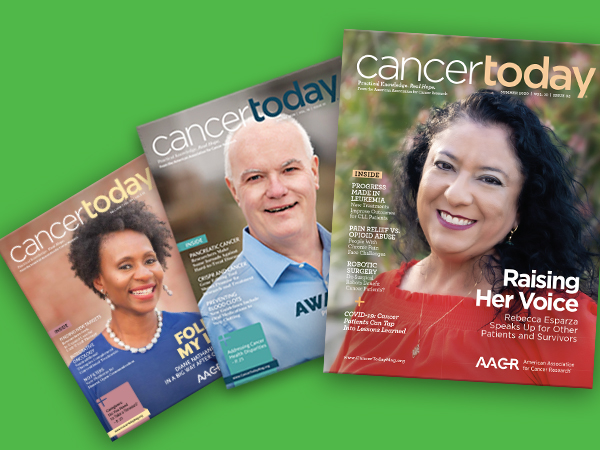Cancer Today Editors’ Picks: 2022
The editors of Cancer Today share some of the top stories from the magazine in 2022.
Home > Practical Knowledge > Cancer Today Editors’ Picks: 2022
The editors of Cancer Today share some of the top stories from the magazine in 2022.

In every issue, Cancer Today offers information and inspiration as readers face the challenges of diagnosis, treatment, survivorship, or caregiving. Cancer Today subscriptions are free to cancer patients, survivors, caregivers, and others in the United States.
Subscribe TodayYour donation to the American Association for Cancer Research helps our more than 58,000 members worldwide drive progress against cancer.
Donate Now